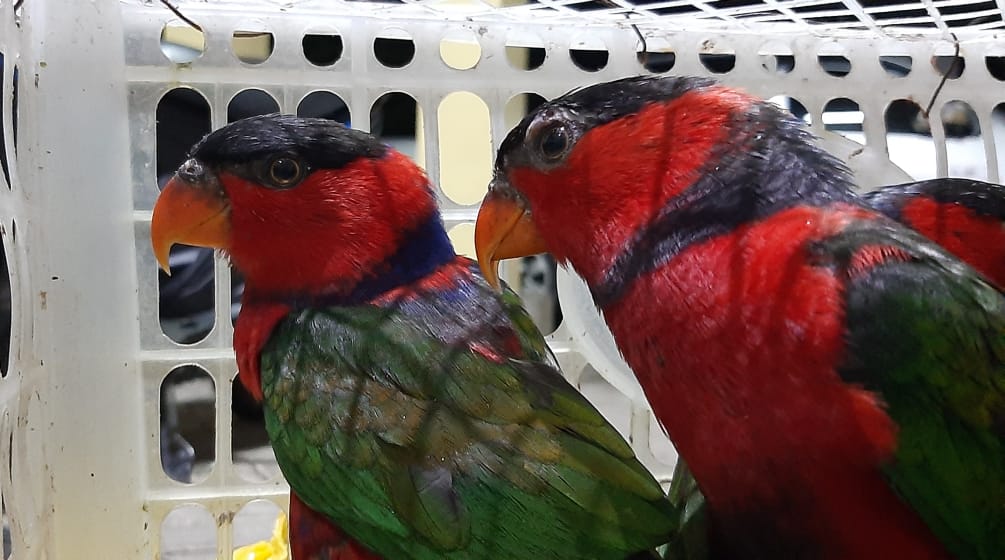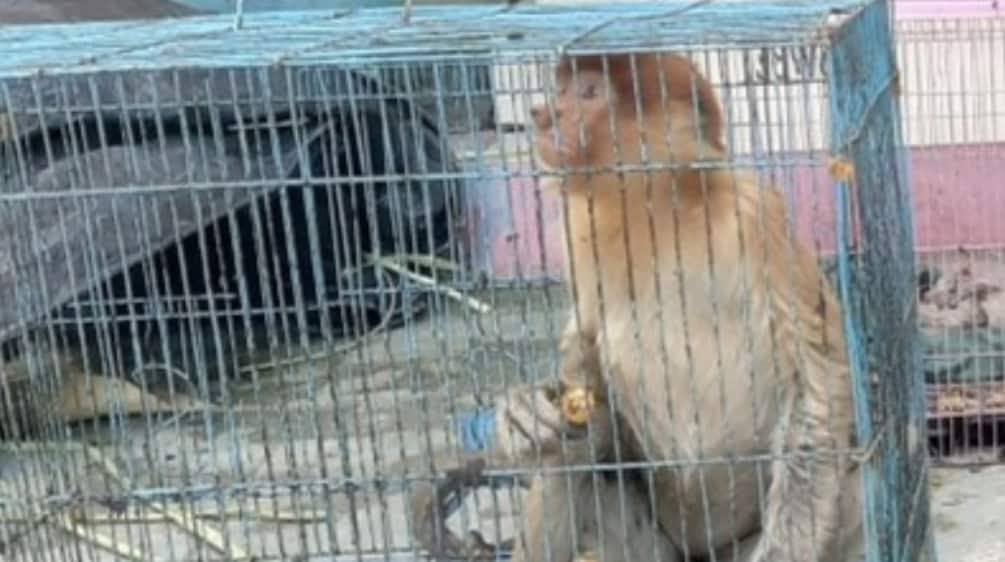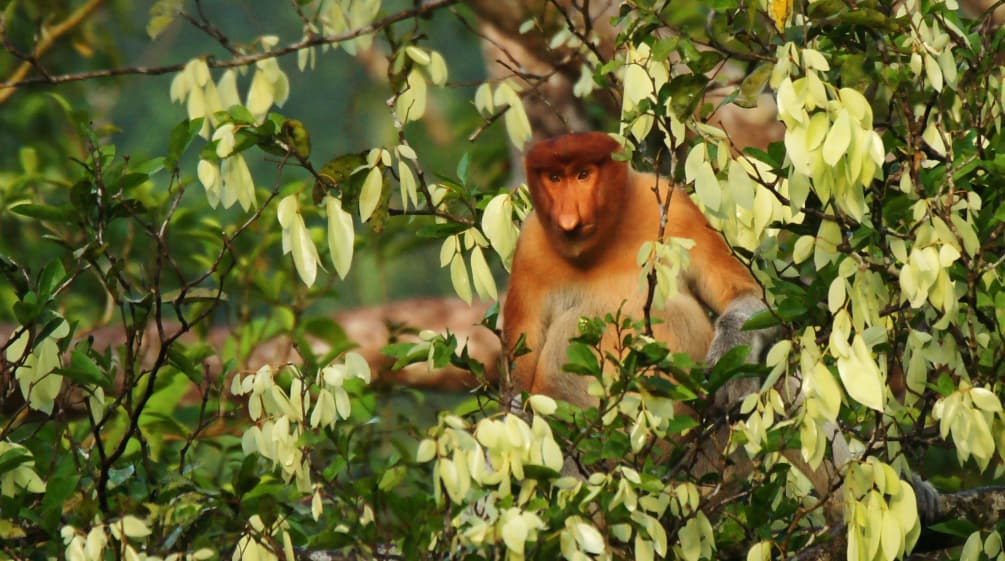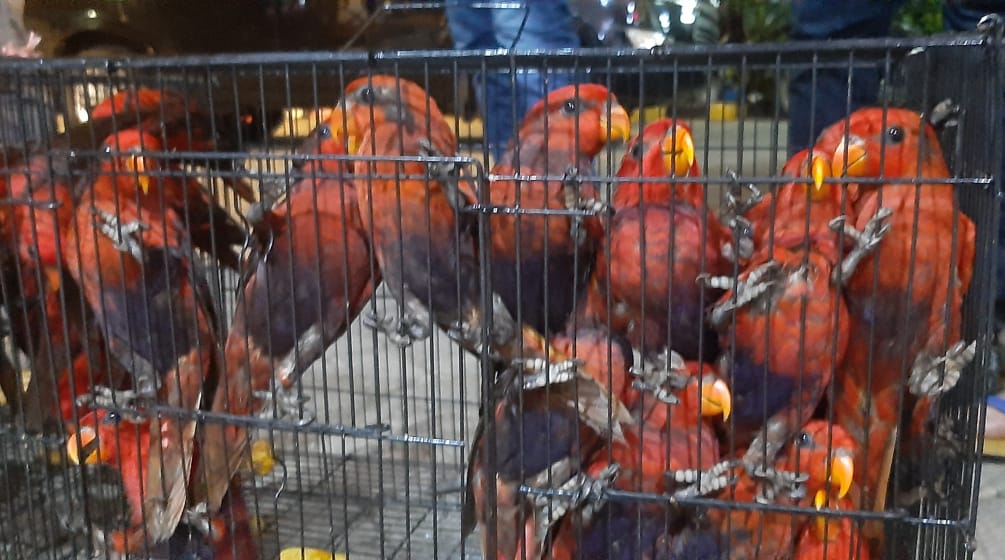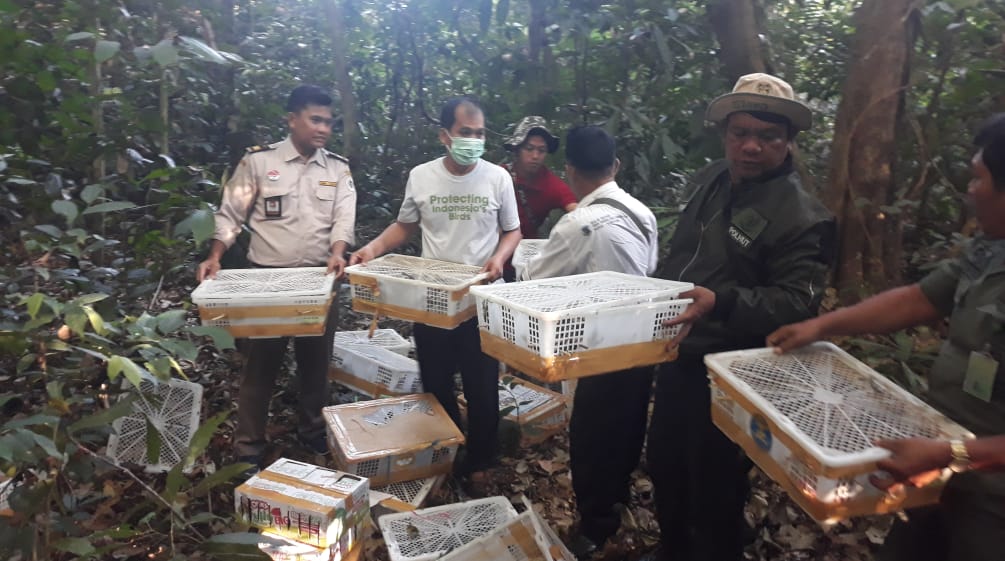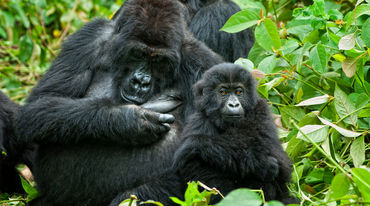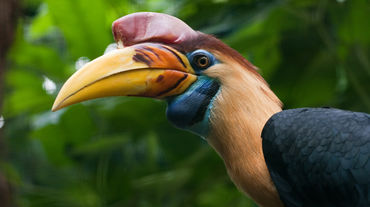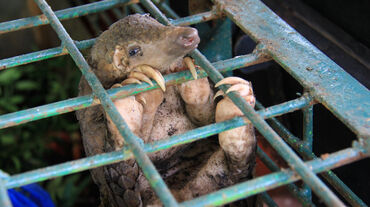Rescued: Proboscis monkeys, leopard cats and black-capped lories returned to the wild
Mar 22, 2024
Rescuing wildlife from smugglers, fighting the trade in exotic birds, and releasing songbirds back into the wild – the wildlife conservationists of our Indonesian partner Flight are making a difference.
God loves birds and created trees. Man loves birds and invented cages.”
“In early March, we rescued six proboscis monkeys, three leopard cats and a langur,” says Marison Guciano of our partner organization Flight – Protecting Indonesia’s Birds.
On the trail of bird traffickers, the activists often free endangered mammals, tracking down gangs of poachers almost every week. They are active not only in Sumatra, but also in Borneo, Sulawesi, the Moluccas and Papua.
In East Kalimantan, Borneo, they rescued the proboscis monkeys (Nasalis larvatus), leopard cats (Prionailurus bengalensis) and silvery langur (Trachypithecus cristatus) from the hands of wildlife traffickers.
A few days later, they rescued 40 yellow-striped lories (Chalcopsitta scintillata) in Sulawesi. These gorgeous green birds with red heads came from Papua, as did the dozens of captive black-capped lories that Flight had recently found. In February 2024, Flight released almost 7,000 birds, mostly songbirds. The activists are particularly happy about the rescue of 140 parrots and cockatoos from eastern Indonesia. The recovered birds are being nursed back to health and will then be released into the wild.
Most birds traded in Indonesia are songbirds. Smaller species in particular often do not survive capture, transport and captivity.
With tenacity and detective skills, Flight activists track down trappers and report their findings to the conservation authorities, port police and veterinary authorities to ensure that the perpetrators are prosecuted.
Thanks to Flight’s commitment to endangered animals, a number of Sumatran smuggling gangs have been exposed. But Indonesia is a big place and there is still much to be done to stop the lucrative wildlife trade.











